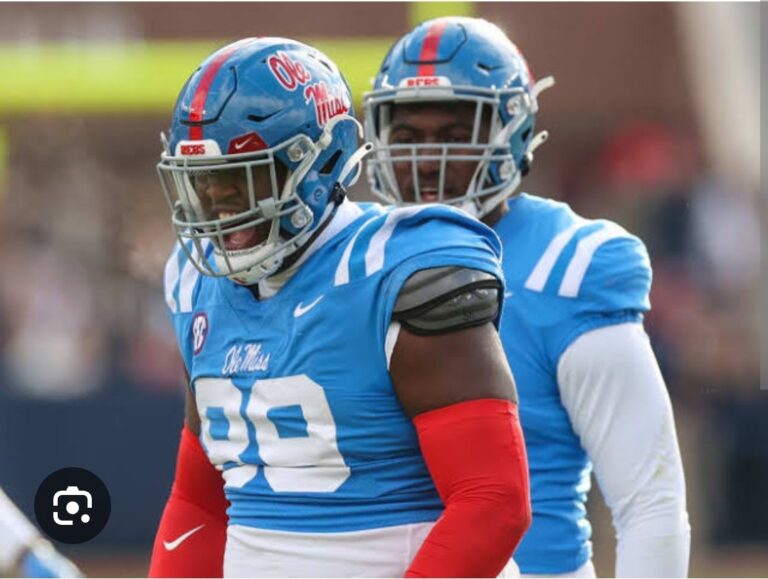In a recent turn of events that has stunned college football fans and raised questions about discipline and accountability within college sports, three-star players from the University of Mississippi (Ole Miss) have been dismissed from the team by the NCAA following allegations of misconduct and the use of hard drugs. The players, who had shown considerable promise on the field, now find themselves embroiled in a controversy that has marred their careers and put a spotlight on issues surrounding student-athlete behavior and the challenges that schools face in maintaining a balance between performance and personal conduct.
The three athletes, whose identities have not been fully disclosed pending further investigations, were dismissed from the Ole Miss football program after a series of incidents that violated both the team’s code of conduct and the NCAA’s strict drug policies. According to reports, the athletes were found to have been involved in the intake of hard drugs, which is a violation of NCAA’s drug-use policy. While the exact nature of the drugs involved has not been confirmed, sources close to the matter suggest that the substances in question were classified as performance-enhancing drugs or recreational substances that are banned by NCAA standards.
This development is particularly shocking given the players’ status as highly recruited three-star prospects. In college football, a three-star player is typically considered a solid contributor, though not among the elite five-star recruits. These players often play pivotal roles for their teams, and their dismissal sends a strong message about the NCAA’s zero-tolerance stance on drug abuse and player misconduct.
Ole Miss, one of the top football programs in the Southeastern Conference (SEC), now faces a challenging situation. The program is known for producing top-tier talent and competing at a high level in college football. However, the school is now under scrutiny for the behavior of its players and its handling of the situation. The athletic department has issued a statement expressing regret over the players’ actions but reaffirmed their commitment to upholding NCAA regulations and ensuring the well-being of all student-athletes. In the statement, Ole Miss emphasized that the focus of the program remains on creating an environment that fosters both academic and athletic success, and they are committed to maintaining high standards of discipline.
The dismissed players now face an uncertain future. While the NCAA’s rules regarding drug use and misconduct are clear, there are provisions for players who wish to seek reinstatement or transfer to another program. However, the stigma surrounding drug-related issues could make it difficult for these athletes to find another program willing to take a risk on their talents. In addition, the long-term impact on their professional aspirations—whether in the NFL or elsewhere—could be significant, as teams are increasingly looking at players’ off-field behavior as much as their on-field potential.
This incident also serves as a reminder of the pressures faced by student-athletes, especially those who are thrust into the spotlight at a young age. While there is no excuse for violating NCAA rules, the demands placed on these athletes often lead to poor decision-making, and the lure of drugs, whether recreational or performance-enhancing, is a risk that many young athletes struggle to avoid. The consequences of such actions, however, are severe, and this case highlights the importance of maintaining discipline both on and off the field.
The dismissal of these three-star players from Ole Miss is likely to send ripples through the college football world. It serves as a cautionary tale for other players, programs, and fans about the potential consequences of misconduct and drug use in collegiate athletics, reinforcing the need for strict adherence to the rules and the importance of personal responsibility in the competitive world of college sports.


